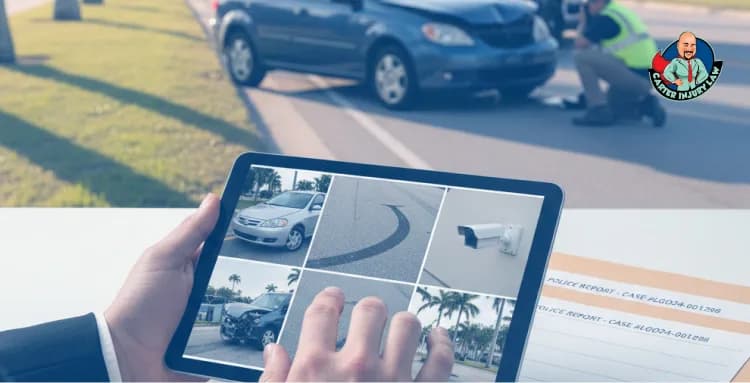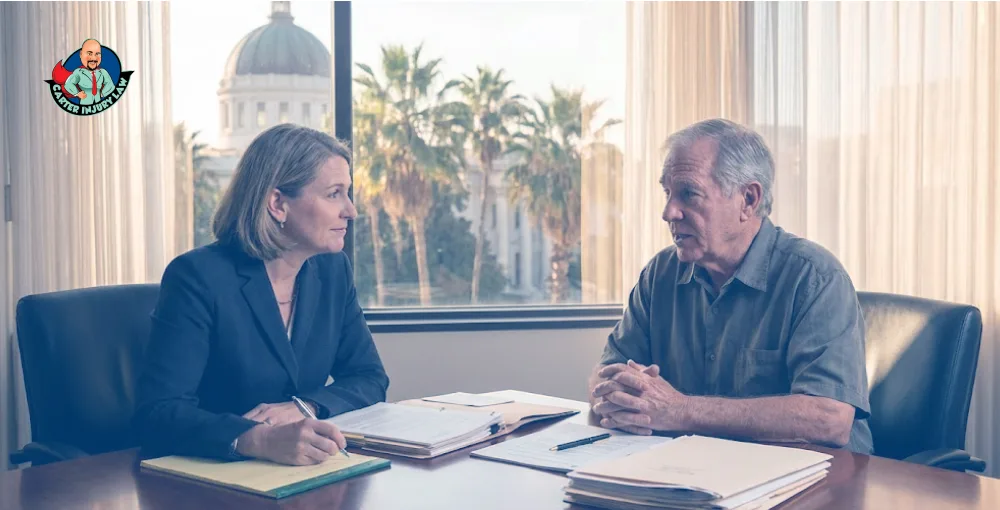After an accident, we don’t just deal with bruises and broken bones. We face decisions no one prepared us for. Do I rest or push through? Will going back to work hurt my case? Will staying home hurt my life?
We talk to people every week who feel this exact tension — torn between healing and surviving. Sometimes, the answer is simple. Sometimes, it’s not.
But before you decide, before you call your boss or send that email… there’s something you should know. And it might change how you look at this whole situation.
1) Can You Work? The First (and Most Honest) Question
That’s not a legal trick question. It’s the first thing we ask because everything else depends on it. If you can do your job, even a modified version of it, that’s important. If you can’t, that’s just as important. However, you need to be clear and honest about it, with yourself and with your doctors.
Please, Talk to your doctor, get an evaluation, and make sure it’s documented. It’s not just about how you feel, it’s also about what you can safely do without making things worse.
“Roughly 2.8 million nonfatal workplace injuries and illnesses were reported in 2022.”
— U.S. Bureau of Labor Statistics
That number might sound like just another stat, but behind it are real people trying to answer the same question you're asking. And the answer isn't always obvious. So, if you're not sure what you can handle, let your doctor, not your boss, not your attorney, or even your gut guide your decision. Because once we know where you stand physically, we can start building everything else around that.
2) You Have a Duty to Try And It’s Called ‘Mitigating Damages'
This legal idea often trips people up sometimes. Mitigating your damages sounds complicated, but it’s actually pretty straightforward.
It means that if you’re able to do something to reduce the financial impact of your injury, like working, you’re expected to try. Not to suffer.
So let’s say your old job had you lifting 50-pound boxes. That might be off the table for now. But could you do something else at work? Could you answer the phone? Could you type? Maybe your employer can shift you to something lighter for a while and by the way, they’re not just doing you a favor.
without making things worse.
“Under the Americans with Disabilities Act (ADA), employers must provide reasonable accommodations unless doing so causes undue hardship.”
That means your employer should be open to working with you, if you ask. And if they won’t? We deal with that too, but the key is to make the effort. Because if you don’t, and the case goes to trial later, the other side will say you didn’t even try to get back on your feet.
3) What If You Can’t Work? Just Document Everything
Look, sometimes, there’s just no way around it. The injury is too serious. You can’t do your job, not even a little bit. And that’s okay. Nobody expects you to work through pain or risk making things worse.
However, if you can’t work, you need to prove it. It’s about building your case so the insurance company can’t deny what’s real.
Start by gathering doctor’s notes that clearly say you can’t work, pay stubs showing what you made before the injury, and all the way through the time you’re off. If you asked your employer for accommodations and they denied them, keep those emails.
This documentation becomes your strongest evidence. It’s what helps your lawyer show the court or the insurance company that you lost income because you simply couldn’t work. The clearer and more organized you are, the better.
4) The Harsh Truth About Lost Wage Claims
Insurance companies and defense attorneys don’t like to pay for time you weren’t working. They’ll dig into your medical records, question your injury, and act like sitting out of work was optional. It’s not personal. It’s business. But that doesn’t make it fair.
Let’s say you miss three months of work and lose $15,000 in income. Best case? You wait 2 to 3 years while we argue with the insurance company. You go to trial, maybe. Eventually, they agree to pay. You get your $15,000 and then you pay taxes on it.
Meanwhile, your rent was due three years ago. The grocery bill didn’t wait. And that money you finally got? It’s not worth what it would’ve been if you’d earned it in real time.
That’s why we always tell clients not to stay out of work just for the case. If you can’t work, we’ll fight that fight. But if you can work, don’t delay just hoping for a bigger check later. The system doesn’t reward that. Here's a quick video breakdown of your current situation.
5) Don’t Lose 3 Years of Pay Waiting on a Settlement
Insurance companies don’t see your time off as proof you were hurt. They see it as an opportunity to argue that you didn’t try to recover, didn’t try to work, didn’t mitigate damages. And while you’re waiting for them to come around, your bills keep coming, your savings shrink, and your stress skyrockets.
We don’t want that for you. Our job is to make you whole but no one can turn back time. That’s the honest truth. We’re here to help recover what you lost, but if you missed 3 years of income unnecessarily, there’s no legal miracle that gets those years back.
So here’s what we tell every client: if you can earn your paycheck now, earn it. Be honest with yourself and your doctors.
6) Accommodations, Modified Duties, and Real-Life Examples
If you’re a landscaper or a mechanic, the work is physical. You’re lifting, bending, carrying. That’s not something you can just push through with a sore back or a busted shoulder. It’s not safe, and frankly, it’s not possible.
However, not all jobs look like that. If you're in a more flexible role — maybe you’re in an office, working at a computer, answering phones — there may be a way to keep working, even with limitations. Ask for a modified duty assignment. Request accommodations. Sit instead of stand. Type instead of lift.
“Only 37% of U.S. jobs are primarily physical labor.”
That means most people can return in some form but it has to make sense for your body and your role.
7) Got Questions? Let’s Tackle ’Em Side by Side
The truth is, no two injuries and no two people are exactly the same. Some folks bounce back quickly. Others carry pain you can’t see. That’s why you don’t have to figure this out in a vacuum. That’s not the expectation, and it’s definitely not the smart play.
So if you’re unsure, if you’re hesitating, if you just want someone to explain what’s smart, what’s fair, and what’s next — that’s what we’re here for.
Call us. Before you return to work, after you have tried, or whenever you are ready.












